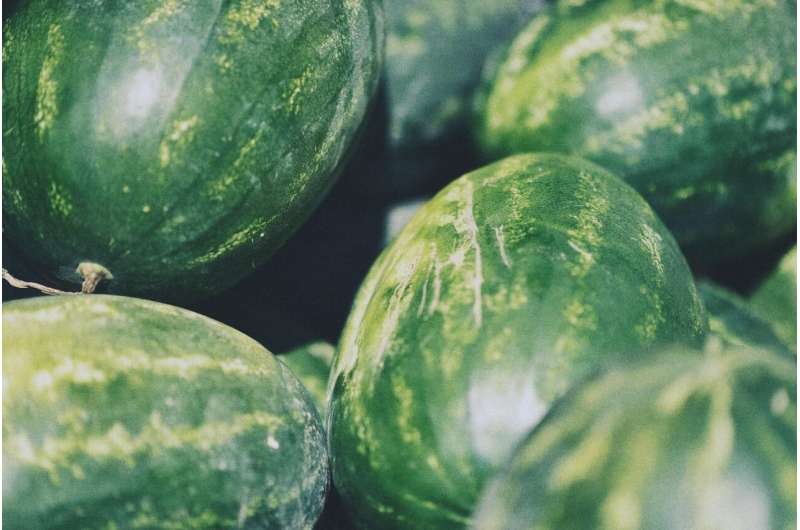Translocation on chromosome 6 causes abnormalities during meiosis and fewer seeds in watermelon

Watermelon (Citrullus lanatus) is an economically important horticultural crop and one of the top five most widely consumed fresh fruits in the world. Compared with traditional seeded cultivars, seedless watermelon is preferred by consumers, exhibits better fruit quality, and provides greater economic benefit to growers.
Research on seedless traits for plant breeding is increasingly focused on molecular and biotechnological approaches. However, only a few seedless fruit mutants have been characterized in agronomically and horticulturally valuable crops and are available for use in crop breeding. Conventional seedless watermelons are mainly triploid, which has many disadvantages: 1) the tedious production process of commercial triploid F1 seeds; 2) the low yield and relatively high cost of F1 seeds; 3) the difficulty of germinating F1 seeds and nursing their seedlings; and 4) the late maturity of the resulting plants. Diploid seedless watermelons can be produced through mutation of specific reproductive genes or by chromosome translocation, which leads to defects during meiosis. However, the detailed mechanisms underlying the formation of diploid seedless watermelon remain largely unknown.
The novel spontaneous chromosomal translocation line "148" exhibits a less-seed phenotype in its F1 hybrid but sets seed normally when selfed. Results of cross-pollination showed that reduced seed number in the F1 hybrid line "2018-z-4" was caused by semi-sterility of the female gametes. To further investigate the cause of gamete semi-sterility in the "2018-z-4" line, chromosome behavior during meiosis was carefully assessed, revealing that gamete semi-sterility was caused by the reciprocal translocation of chromosomes. Whole-genome resequencing and genetic mapping analysis revealed that translocation of a 2.09-Mb region on chromosome 6 caused defects during meiosis, which led to the formation of diploid less-seeded watermelon. However, the minimum fragment length required for the production of less seed watermelon by chromosome translocation remains to be confirmed.
Artificial induction of chromosome translocation has been successfully performed in Arabidopsis and maize using CRISPR-Cas9-mediated technology. "CRISPR-Cas9 genome editing technology has great potential for restructuring watermelon genomes to produce seedless watermelon," said Li Yuan, a professor at the State Key Laboratory of Crop Stress Biology for Arid Areas. Genome editing technologies can thus enable easier breeding of less seed watermelon.
The scientists proposed a model for the less seed watermelon phenotype and the underlying changes in meiosis during seed development. This study provides a new, promising method for the breeding of diploid less seed watermelon, as well as a fragment size reference for breeding less seed watermelon through artificially induced chromosome translocation.
The research was published in Horticulture Research.
More information: Shujuan Tian et al, A 2.09 Mb fragment translocation on chromosome 6 causes abnormalities during meiosis and leads to less seed watermelon, Horticulture Research (2021).
Provided by Nanjing Agricultural University
















